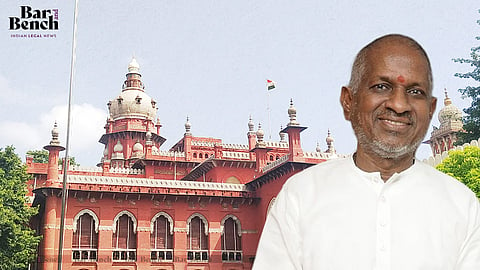
- Latest Legal News
- News
- Dealstreet
- Viewpoint
- Columns
- Interviews
- Law School
- Legal Jobs
- हिंदी
- ಕನ್ನಡ

The Madras High Court on Friday granted interim protection to the personality rights of music composer Ilaiyaraaja by restraining various digital platforms from using his image, photographs, comical or animated depictions, AI-generated visuals or any other identifiable attributes without authorisation [Dr Ilaiyaraaja Vs Ashok Kumar].